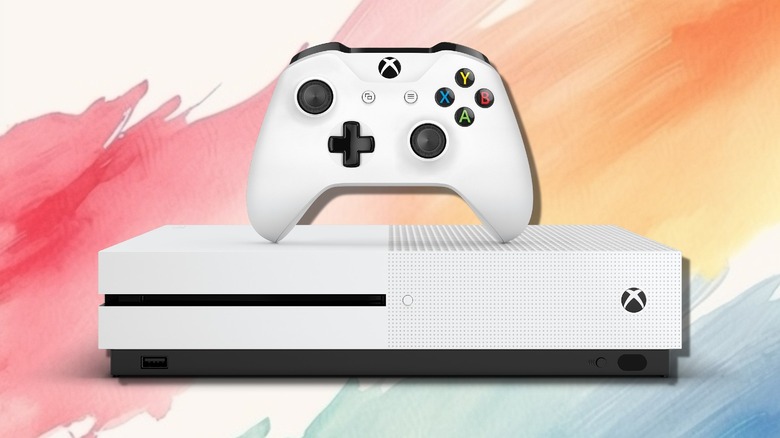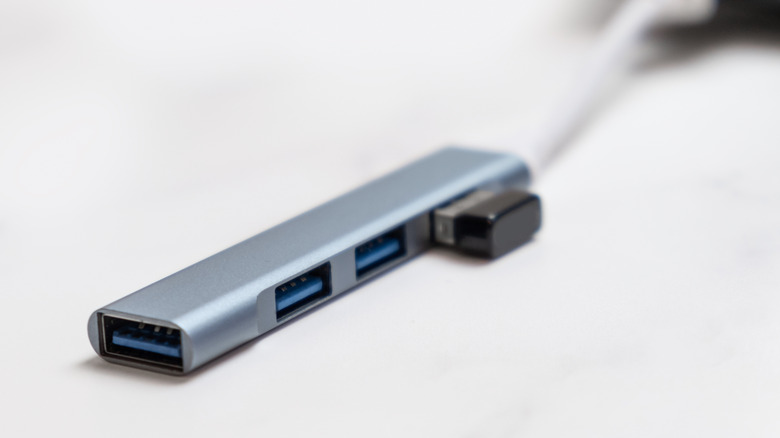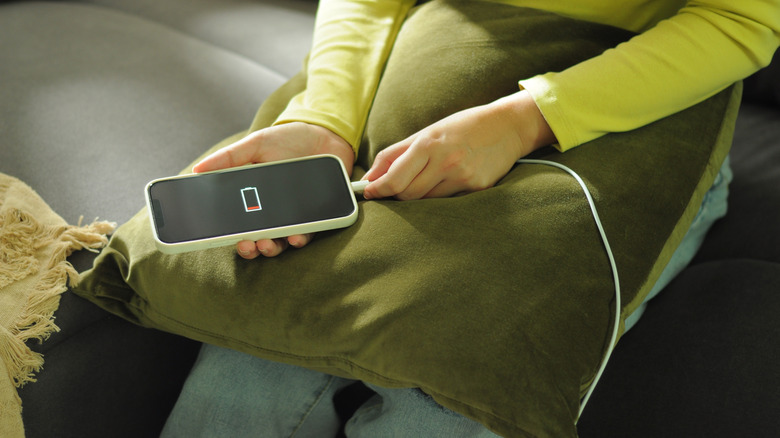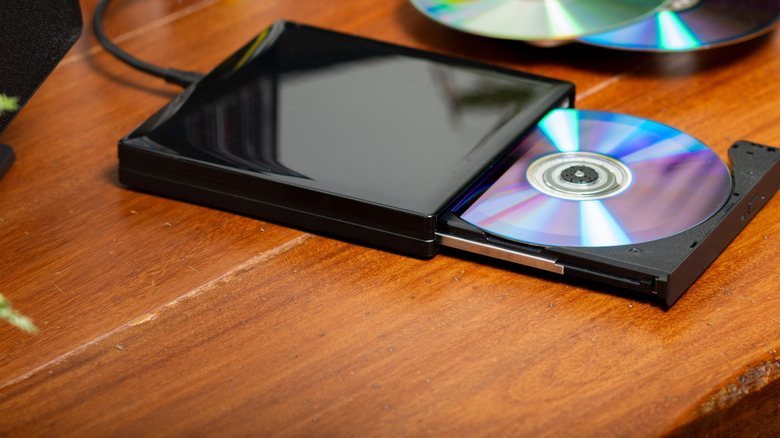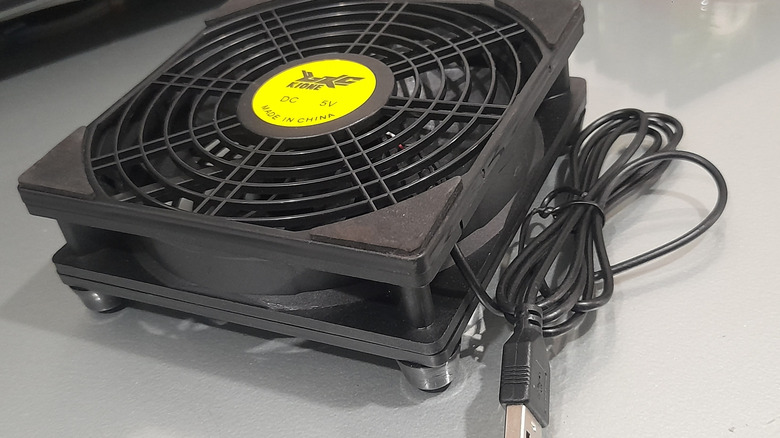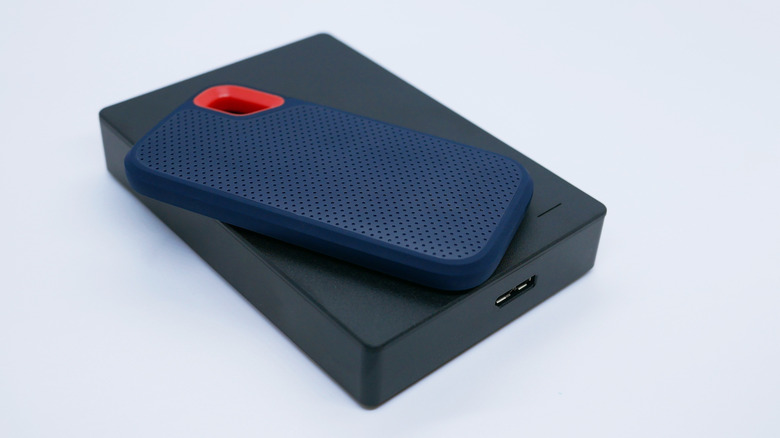Never Plug These Devices Into Your Xbox's USB Ports
USB ports are everywhere, even in your Xbox. It's only natural to assume that any USB port can handle any USB device. It feels like a logical leap, a quick and easy solution to any minor charge needed for a phone or to power a USB fan, like expanding your console's functionality. It may seem like the whole point of standardization is to make them all equal, but that's simply not the case. While USB ports may look the same on the outside, their internal design and the power delivery systems they're connected to can vary significantly.
The misconception is due to how similar USB ports look across the many kinds of electronics that use them. You see USBs on laptops, smart TVs, and even cars. USB has become the go-to way to transfer power and data. That makes it seem like a USB port is a general input and should be interchangeable regardless of the device. It's an easy mistake to make, but it can have real consequences.
An Xbox's USB ports are not general-purpose power outlets or charging stations. These ports are specifically made to support the console's core functions and its officially-licensed ecosystem. They are there for gaming accessories like your controllers, your keyboard, a mouse, and licensed external storage. We're not here to scold or criticize but to let you know the crucial differences that can save your Xbox from a potentially costly error.
USB-powered hubs
Throwing an unapproved or poorly-made, high-powered USB hub onto your Xbox Series X|S is a big risk. You're essentially playing with power integrity, risking the health of your console, and gambling on whether your accessories will even work. The USB 3.1 Gen 1 ports on the Xbox Series X|S only sends out a limited amount of juice, usually topping out at 900mA (4.5W). A USB hub can be dangerous to plug into a laptop, so an Xbox should give you a second thought.
If you really want one, use a powered USB hub, one that has its own external AC adapter. This is especially required if you're connecting things like external hard drives or a bunch of controllers. One thing you need to understand is that USB hubs can overlord the port and can cause the hub or USB interface to overheat. That can lead to some serious damage.
It's just better to avoid altogether, because cheap ones can cause sudden spikes or surges that can seriously jeopardize your console's USB port. On the other hand, Microsoft has been cracking down hard on unauthorized accessories, which is essentially what this is. If a high-powered hub or any connected peripheral isn't licensed, you risk it being blocked from use by the console. Using these devices can also void your limited warranty for the Xbox. This basically means your console won't be eligible for a warranty repair.
Most USB-powered phone and tablet chargers
It's not a good idea to plug in most USB-powered phone or tablet chargers into an Xbox Series X|S. The main issue is the lack of support between the power delivery standards and the inherent risks that come with using USBs that aren't necessarily compatible. The biggest factor here is the electrical specifications, while the Xbox Series X|S has USB 3.2 Gen 1 ports, those usually max out at 900 mA at 5V, which only equals 4.5 W of power. That is a huge difference when you compare it to phones that use fast-charging protocols and can easily demand anywhere more than 18W.
When you connect a fast-charging phone or tablet to the console's lower-powered port, what you'll usually get is an incredibly slow trickle charge. What's worse, this inconsistent power flow can cause your phone to constantly cycle through charging states, and that's awful for your phone's long-term battery health. It's just good practice to avoid using your Xbox as a charging hub for your other devices so you don't put unnecessary wear and tear on the console's ports.
While you should always use trustworthy cords and chargers for your phone, it's easy to drop to the cheap, off-brand chargers. However, once they're connected through the console, they can introduce some real safety hazards. Cheaper accessories can have difficulty with safety features like surge protection and regulated voltage control.
External optical drives (CD, DVD, and Blu-ray)
You shouldn't plug an external optical drive, like a CD, DVD, or Blu-ray player, into an Xbox because the console's operating system can keep them from working. The Xbox Series S is an all-digital model and just doesn't have a disc drive. If you try to connect a typical external optical drive you'd use with a PC, it won't work. This is because, even with the resurgence of disc drives, the Xbox OS doesn't have the generic drivers needed to make it work.
Testing actually shows that even when you put a 4k Blu-ray disc into an external drive hooked up to the Series S, the console's Blu-ray Disc app pops up an error telling you the app needs an Xbox with a disk drive. Even for the Xbox Series X, which already has an internal 4k UHD Blu-ray drive, external optical drives are just not compatible. Microsoft doesn't include support for the majority of unauthorized USB devices, and that includes non-licensed, third-party disc readers.
This restriction is also about security because it helps stop piracy and exploits that USB ports can introduce. Even if you manage to get by all this, using those unauthorized accessories could get your Xbox blocked from use. So, it's better to avoid using external optical drives altogether.
USB fans and heaters
USB-powered fans and heaters seem perfect for the Xbox Series X|S because they're so small. However, these accessories draw a ton of power and can actually mess with the console's own cooling system. The issue is that the console's USB ports have a pretty limited power output. Something like a little USB desk fan needs more power, usually at least 5W to 10W, which is more than the 4.5W your Xbox USB port has.
Basically, plugging these accessories in risks the port failing because they're always trying to pull too much juice. When a device tries to pull more current than the port can deliver, your console, just like a regular computer, might spot this overcurrent. This could lead to it automatically shutting down the USB interface to stop an overload or, worse, internal damage. Even highly rated USB fans aren't made for your Xbox's USB ports, so keep away from them.
What's worse is that external cooling fans also come at a hardware risk by messing with the Xbox's built-in thermal management. Microsoft spent a fortune designing the cooling system for the Series X, which uses one massive internal fan to manage heat. External fans, especially the ones you plug into the USB Port, often do nothing at best, and at worst, they can mess with the airflow that the Xbox is designed to have flow a specific way.
An unlicensed storage drive
Plugging a standard external storage drive into an Xbox Series X|S isn't the way to go for playing next-generation games. Xbox games were made to use the console's internal storage. The issue is speed, because games marked with the "Optimized for Xbox Series X|S" use the built-in architecture because it gives a guaranteed level of performance. If you want something other than the internal SSD, the best external storage options you have for your Xbox are a Storage Expansion Card officially licensed by Microsoft or other licensed storage drives.
There are storage devices made by companies outside of Microsoft. These expansion cards, made by licensed partners like Seagate and Western Digital, plug right into a dedicated slot and can do exactly what the internal SSDs can do. Those that aren't partnered with Microsoft plug into the console's slower USB 3.1 Gen 1 ports, which max out at roughly 625 MB/s. This is a lot slower than the internal SSD, and because of this massive speed difference, the Xbox isn't designed to let you run games from it.
With all that said, these drivers can still store or archive those games and saves. However, you've got to transfer the game back to the internal SSD or Expansion Card before you can play it. To be fair, that transfer can be much faster overall than re-downloading the entire thing, but that depends on your internet speed.
